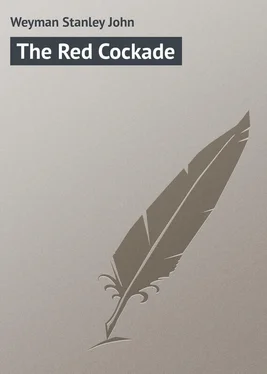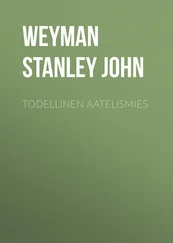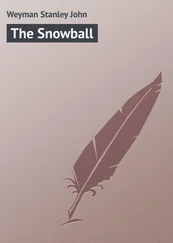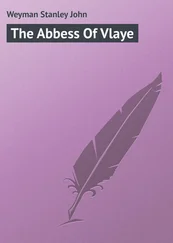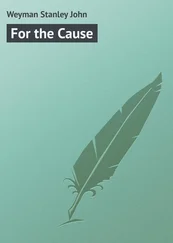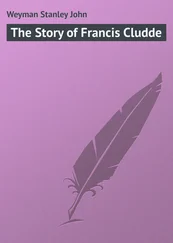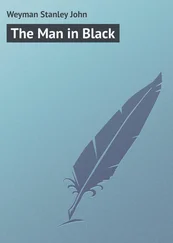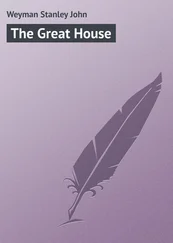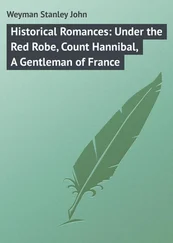Stanley Weyman - The Red Cockade
Здесь есть возможность читать онлайн «Stanley Weyman - The Red Cockade» — ознакомительный отрывок электронной книги совершенно бесплатно, а после прочтения отрывка купить полную версию. В некоторых случаях можно слушать аудио, скачать через торрент в формате fb2 и присутствует краткое содержание. Жанр: foreign_prose, на английском языке. Описание произведения, (предисловие) а так же отзывы посетителей доступны на портале библиотеки ЛибКат.
- Название:The Red Cockade
- Автор:
- Жанр:
- Год:неизвестен
- ISBN:нет данных
- Рейтинг книги:4 / 5. Голосов: 1
-
Избранное:Добавить в избранное
- Отзывы:
-
Ваша оценка:
- 80
- 1
- 2
- 3
- 4
- 5
The Red Cockade: краткое содержание, описание и аннотация
Предлагаем к чтению аннотацию, описание, краткое содержание или предисловие (зависит от того, что написал сам автор книги «The Red Cockade»). Если вы не нашли необходимую информацию о книге — напишите в комментариях, мы постараемся отыскать её.
The Red Cockade — читать онлайн ознакомительный отрывок
Ниже представлен текст книги, разбитый по страницам. Система сохранения места последней прочитанной страницы, позволяет с удобством читать онлайн бесплатно книгу «The Red Cockade», без необходимости каждый раз заново искать на чём Вы остановились. Поставьте закладку, и сможете в любой момент перейти на страницу, на которой закончили чтение.
Интервал:
Закладка:
"And what do you think now?" I said thoughtfully, when I had listened to his tale.
"Only what I did before," he answered stoutly. "It has come. Without money, and therefore without soldiers who will fight, with a starving people, with men's minds full of theories and abstractions, that all tend towards change, what can a Government do?"
"Apparently it can cease to govern," I said tartly; "and that is not what any one wants."
"There must be a period of unrest," he replied, but less confidently. "The forces of order, however, the forces of the law have always triumphed. I don't doubt that they will again."
"After a period of unrest?"
"Yes," he answered. "After a period of unrest. And, I confess, I wish that we were through that. But we must be of good heart, M. le Vicomte. We must trust the people; we must confide in their good sense, their capacity for government, their moderation-"
I had to interrupt him. "What is it, Gil?" I said with a gesture of apology. The servant had come out of the house and was waiting to speak to me.
"M. Doury, M. le Vicomte, from Cahors," he answered.
"The inn-keeper?"
"Yes, Monsieur; and Buton. They ask to see you."
"Together?" I said. It seemed a strange conjunction.
"Yes, Monsieur."
"Well, show them here," answered, after consulting my companion's face. "But Doury? I paid my bill. What can he want?"
"We shall see," Father Benôit answered, his eyes on the door. "Here they come. Ah! Now, M. le Vicomte," he continued in a lower tone, "I feel less confident."
I suppose he guessed something akin to the truth; but for my part I was completely at a loss. The innkeeper, a sleek, complaisant man, of whom, though I had known him some years, I had never seen much beyond the crown of his head, nor ever thought of him as apart from his guests and his ordinary, wore, as he advanced, a strange motley of dignity and subservience; now strutting with pursed lips, and an air of extreme importance, and now stooping to bow in a shame-faced and half-hearted manner. His costume was as great a surprise as his appearance, for, instead of his citizen's suit of black, he sported a blue coat with gold buttons, and a canary waistcoat, and he carried a gold-headed cane; sober splendours, which, nevertheless, paled before two large bunches of ribbons, white, red, and blue, which he wore, one on his breast, and one in his hat.
His companion, who followed a foot or two behind, his giant frame and sun-burned face setting off the citizen's plumpness, was similarly bedizened. But though be-ribboned and in strange company, he was still Baton, the smith. His face reddened as he met my eyes, and he shielded himself as well as he could behind Doury's form.
"Good-morning, Doury," I said. I could have laughed at the awkward complaisance of the man's manner, if something in the gravity of the Curé's face had not restrained me. "What brings you to Saux?" I continued. "And what can I do for you?"
"If it please you, M. le Vicomte," he began. Then he paused, and straightening himself-for habit had bent his back-he continued abruptly, "Public business, Monsieur, with you on it."
"With me?' I said, amazed. On public business?"
He smiled in a sickly way, but stuck to his text. "Even so, Monsieur," he said. "There are such great changes, and-and so great need of advice."
"That I ought not to wonder at M. Doury seeking it at Saux?"
"Even so, Monsieur."
I did not try to hide my contempt and amusement; but shrugged my shoulders, and looked at the Curé.
"Well," I said, after a moment of silence, "and what is it? Have you been selling bad wine? Or do you want the number of courses limited by Act of the States General? Or-"
"Monsieur," he said, drawing himself up with an attempt at dignity, "this is no time for jesting. In the present crisis inn-keepers have as much at stake as, with reverence, the noblesse; and deserted by those who should lead them-"
"What, the inn-keepers?" I cried.
He grew as red as a beetroot. "M. le Vicomte understands that I mean the people," he said stiffly. "Who deserted, I say, by their natural leaders-"
"For instance?"
"M. le Duc d'Artois, M. le Prince de Condé, M. le Duc de Polignac, M. – "
"Bah!" I said. "How have they deserted?"
" Pardieu , Monsieur! Have you not heard?"
"Have I not heard what?"
"That they have left France? That on the night of the 17th, three days after the capture of the Bastille, the princes of the blood left France by stealth, and-"
"Impossible!" I said. "Impossible! Why should they leave?"
"That is the very question, M. le Vicomte," he answered, with eager forwardness, "that is being asked. Some say that they thought to punish Paris by withdrawing from it. Some that they did it to show their disapproval of his most gracious Majesty's amnesty, which was announced on that day. Some that they stand in fear. Some even that they anticipated Foulon's fate-"
"Fool!" I cried, stopping him sternly-for I found this too much for my stomach-"you rave! Go back to your menus and your bouillis! What do you know about State affairs? Why, in my grandfather's time," I continued wrathfully, "if you had spoken of princes of the blood after that fashion, you would have tasted bread and water for six months, and been lucky had you got off unwhipped!"
He quailed before me, and forgetting his new part in old habits, muttered an apology. He had not meant to give offence, he said. He had not understood. Nevertheless, I was preparing to read him a lesson when, to my astonishment, Buton intervened.
"But, Monsieur, that is thirty years back," he said doggedly.
"What, villain?" I exclaimed, almost breathless with astonishment, "what do you in this galère? "
"I am with him," he answered, indicating his companion by a sullen gesture.
"On State business?"
"Yes, Monsieur."
"Why, mon Dieu ," I cried, staring at them between amusement and incredulity, "if this is true, why did you not bring the watch-dog as well! And Farmer Jean's ram? And the good-wife's cat? And M. Doury's turnspit? And-"
M. le Curé touched my arm. "Perhaps you had better hear what they have to say," he observed softly. "Afterwards, M. le Vicomte-"
I nodded sulkily. "What is it, then?" I said. "Ask what you want to ask."
"The Intendant has fled," Doury answered, recovering something of his lost dignity, "and we are forming, in pursuance of advice received from Paris, and following the glorious example of that city, a Committee; a Committee to administer the affairs of the district. From that Committee, I, Monsieur, with my good friend here, have the honour to be a deputation."
"With him?" I said, unable to control myself longer. "But, in heaven's name, what has he to do with the Committee? Or the affairs of the district?"
And I pointed with relentless finger at Buton, who reddened under his tan, and moved his huge feet uneasily, but did not speak.
"He is a member of it," the inn-keeper answered, regarding his colleague with a side glance, which seemed to express anything but liking. "This Committee, to be as perfect as possible, Monsieur le Vicomte will understand, must represent all classes."
"Even mine, I suppose," I said, with a sneer.
"It is on that business we have come," he answered awkwardly. "To ask, in a word, M. le Vicomte, that you will allow yourself to be elected a member, and not only a member-
"What elevation!"
"But President of the Committee."
After all-it was no more than I had been foreseeing! It had come suddenly, but in the main it was only that in sober fact which I had foreseen in a dream. Styled the mandate of the people, it had sounded well; by the mouth of Doury, the inn-keeper, Buton assessor, it jarred every nerve in me. I say, it should not have surprised me; while such things were happening in the world, with a King who stood by and saw his fortress taken, and his servants killed, and pardoned the rebels; with an Intendant of Paris slaughtered in his own streets; with rumours and riots in every province, and flying princes, and swinging millers, there was really nothing wonderful in the invitation. And now, looking back, I find nothing surprising in it. I have lived to see men of the same trade as Doury, stand by the throne, glittering in stars and orders; and a smith born in the forge sit down to dine with Emperors. But that July day on the terrace at Saux, the offer seemed of all farces the wildest, and of all impertinences the most absurd.
Читать дальшеИнтервал:
Закладка:
Похожие книги на «The Red Cockade»
Представляем Вашему вниманию похожие книги на «The Red Cockade» списком для выбора. Мы отобрали схожую по названию и смыслу литературу в надежде предоставить читателям больше вариантов отыскать новые, интересные, ещё непрочитанные произведения.
Обсуждение, отзывы о книге «The Red Cockade» и просто собственные мнения читателей. Оставьте ваши комментарии, напишите, что Вы думаете о произведении, его смысле или главных героях. Укажите что конкретно понравилось, а что нет, и почему Вы так считаете.
